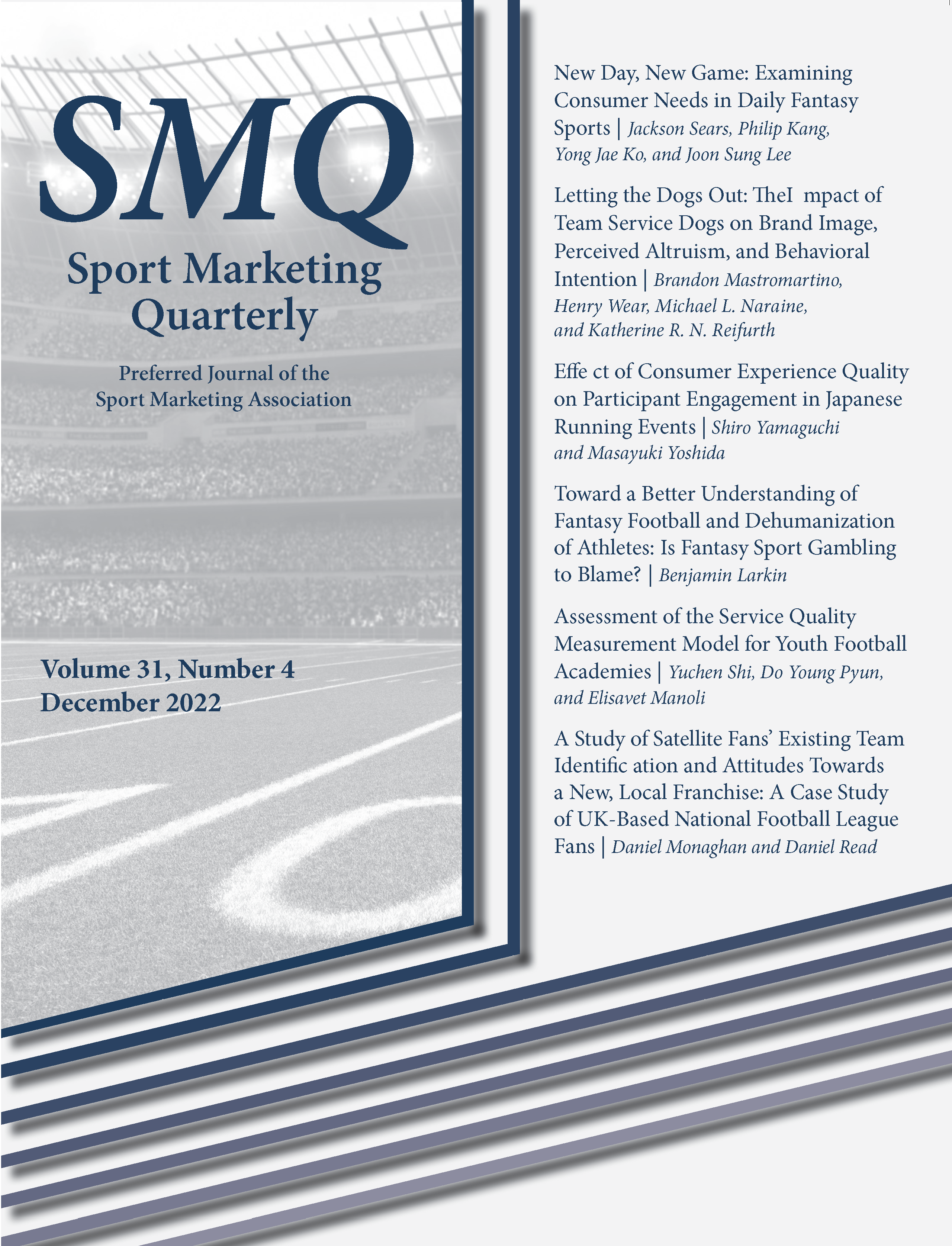Sports Marketing Quarterly
Issue 31:4 – December, 2022
Issue 31:4 – December, 2022

A recent cause-related marketing (CRM) trend for sport organizations has been to adopt a service dog that they will train and showcase through social media and at team events. This phenomenon is unique as these teams are utilizing the dog as a brand association but through a charitable lens in that they are providing resources to train the dog and giving exposure to a good cause. This study examines the consumer behavior implications, specifically brand image, perceived altruism, and purchase intentions, of sport organizations adopting service dogs. Through an experimental design, this study introduces an emerging factor in sport CRM and suggests the level of the consumer’s awareness of the CRM initiative impacts consumer’s image of the brand, perceived altruism, and purchase intentions. This article furthers our conceptual understanding of CRM and provides practical implications for sport organizations looking to adopt this strategy.